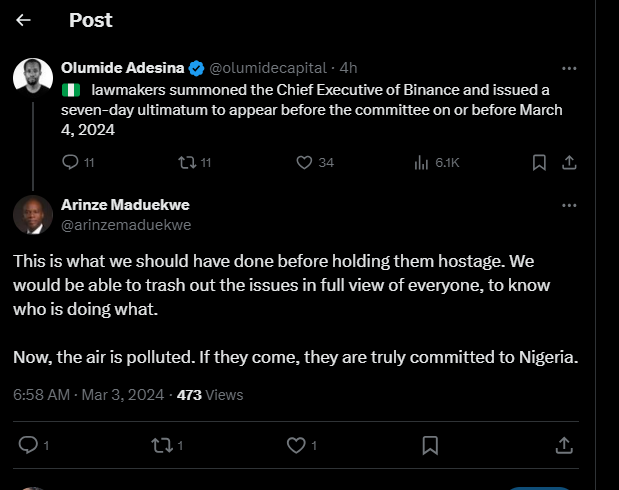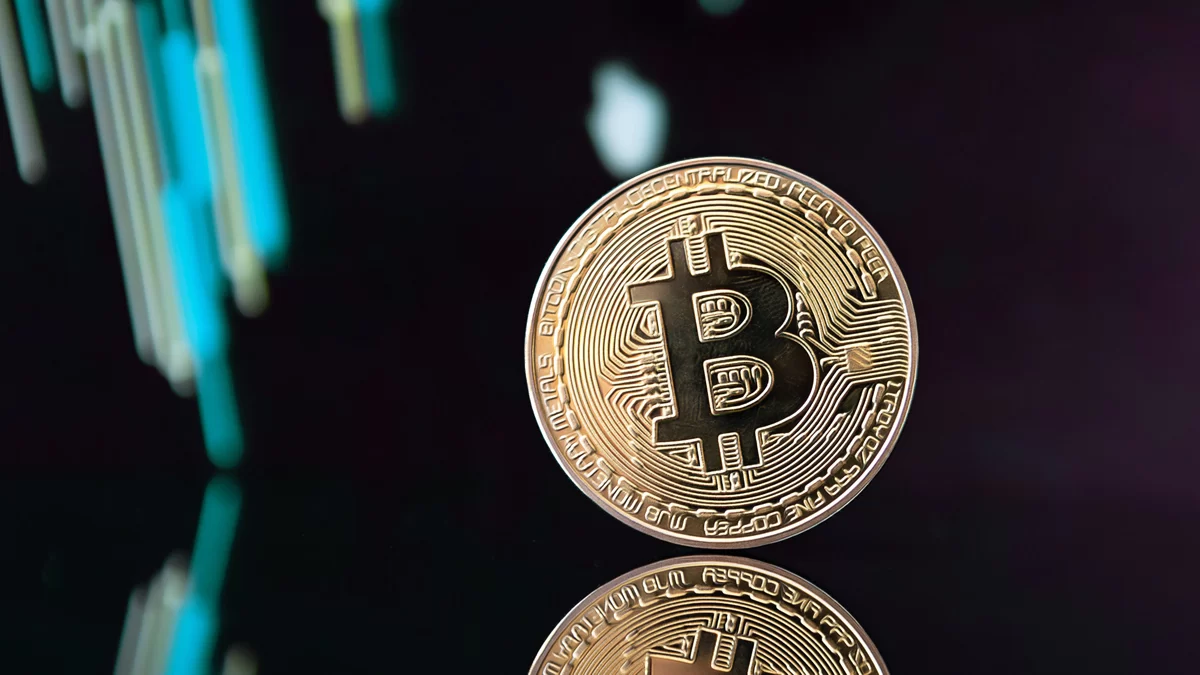Nigeria‘s House of Representatives Committee on Financial Crimes has summoned Binance CEO Richard Teng over suspicions of money laundering. According to a local news source, The Punch, Committee Chairman Ginger Onwusibe gave Binance management a seven-day ultimatum at a panel on March 1st, demanding the executives appear before the committee on March 4, 2024.
Notable Accusations Against Binance
The Central Bank of Nigeria (CBN) official raised concerns about the cryptocurrency exchange Binance on February 27th, alleging suspicious fund flows through the exchange in 2023. Onwusibe warned that if Binance ignores the call, the committee would be forced to exercise its constitutional authority to take necessary actions. According to The Punch, a letter dated December 12, 2023, signed by committee chairman Onwusibe, called for a hearing with the Binance Managing Director planned for December 18, 2023.
Binance CEO Teng expressed disappointment for not being able to attend several invitations related to the issue. Onwusibe emphasized that this neglects the existing laws regulating commercial and financial operations in the country. Onwusibe reiterated the committee’s determination to combat financial crimes and highlighted the constitution’s authority to protect Nigerians, especially from financial crimes involving foreign companies.

Nigeria and the Cryptocurrency Market
It was reported that the office of the National Security Adviser in Nigeria’s capital, Abuja, also detained two senior Binance officials, as the country began to pressure cryptocurrency exchanges to curb speculation about the naira. Amid pressures on the crypto exchange, Binance removed the naira from its peer-to-peer (P2P) service on Wednesday, February 28th.
P2P feature allows users to trade directly with each other without the need for a third party. After the government banned the growing crypto industry during former President Muhammadu Buhari’s administration, Binance became popular in Nigeria in 2021.
However, in December 2023, the CBN lifted a two-year ban on banks conducting crypto transactions and simultaneously issued guidelines to regulate crypto asset service providers. Nigeria became the second country to launch a central bank digital currency in 2022. In February, the African Stablecoin Consortium launched the naira-pegged cNGN stablecoin in the CBN regulated crypto space.









